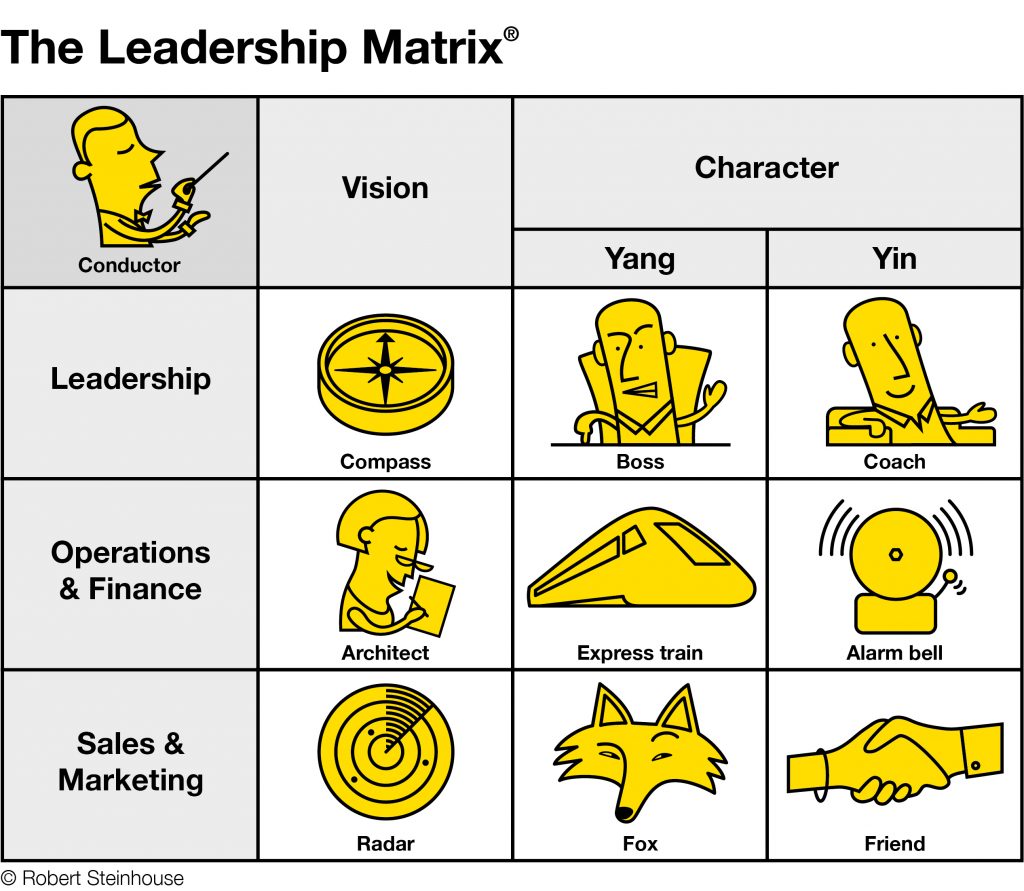Five Leadership Tips to Make Criticism Your Friend
In my Leadership Matrix model below, each character, or Archetype, represents a positive business energy. Each Archetype also has a Shadow – a potentially problematic manifestation of that Archetype.

In this blog I will offer 5 tips around criticism, and relate them to the Archetypes I detail in my model above.
1. Ask for criticism
Encouraging people in your organisation (and beyond) to be honest and to speak out is probably the most important factor to create a robust and dynamic culture. The ‘big vision’ Compass Archetype wants an open, direct and respectful culture. However, this is so uncommon in organisations that huge amounts of effort are often expended in doing things that are unnecessary; hiding things and showing deference. A leader may get confusing messages that things are going well. Although many organisations claim they want this honesty, in reality if an employee makes a criticism of the leader, they are often punished. Behaviour is a greater teacher than hypocritical lists of values that are not adhered to in practice.
2. Show respect when criticising
When leaders give criticism, this needs to be done far more tactfully due to the power dynamic. Some hard-headed ‘Boss Archetype’ dominated leaders may talk about giving as good as they get. However, this will create problems as their employees will naturally fear them and without the balance of the Coach Archetype, being highly respectful when they make these criticisms (and making them brief and specific) they will naturally create a culture of fear and complaints about feeling humiliated and demotivated.
3. Part of the brain dislikes criticism
Neurologically, the frontal cortex of the human being tends to be logical and strategically welcomes any input that can help improve things. However, the limbic system (or mammal brain) reacts emotionally to the criticism and tends to see it as a threat. Understanding that you may react negatively to criticism requires a higher level of thinking to help you detach from these emotions – the Conductor Archetype. This encourages you to pause, reflect and cool down. I would suggest you thank the person who gave you the criticism and say you would like to reflect on it and arrange to meet them again within 24 hours (otherwise they may worry that you have taken it badly).
4. Criticise others with empathy
If you as the leader receive a negative reaction to criticism you have given, then use your imagination and put yourself in the shoes of an employee who has received your criticism. This is where the Coach Archetype expands beyond respect and into a real effort to criticise without being angry, just direct and reassuring. Some leaders find it hard to criticise others without anger, however the power imbalance means that you need to learn this important skill.
5. Learning can be like being criticised
As a leader, you will regularly need advice or input to deal with the multitude of new requirements and changes that happen in the world. However, in the same way a part of your brain doesn’t like criticism, this same part doesn’t like to admit it doesn’t know something. This is beyond humility, it is an awareness that learning, though essential, creates an inner resistance. Accept that resistance, but do continue to learn, as the Guru (the Shadow of the Radar Archetype) is a natural and potentially fatal flaw that can develop when leaders have had a run long of success.
Next week, I will be teaching The Leadership Matrix on our Leadership Coaching with NLP webinar on 25th August. You can book your place now.
Did you like this post?
Then check out our events and courses!
Where to find us
For posts, events, free open days and more, follow NLP School on:
Where to find Robbie
Twitter: @RSteinhouse
LinkedIn: Robbie Steinhouse
What to read next
Coaching With Archetypes: The Different Leadership Types
Becoming a Leader: From Specialist to Generalist









